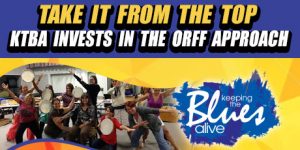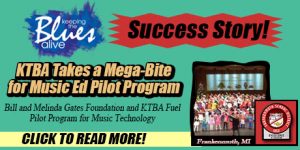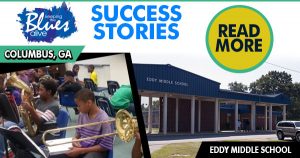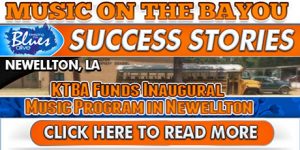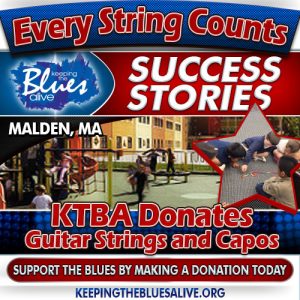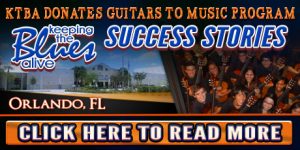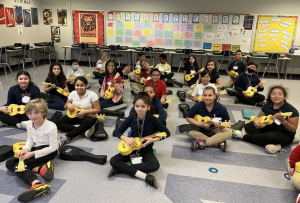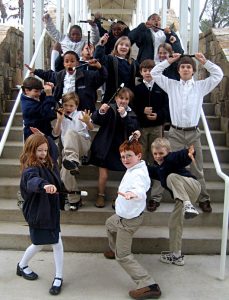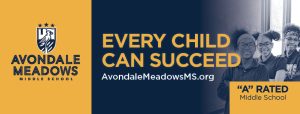
Fit For a Bright Future
Rockford, illinois – Did you have the opportunity to learn a musical instrument when you were in grade school? When did your musical exposure begin? Did your parents play old Elvis records? Did they enjoy the Beatles? How about Sly and the Family Stone? Stevie Ray Vaughan? Were your parents more of the Alanis Morissette type? For me, my parents were all about gospel, r&b, and the blues. In college, my dad owned his own VJ system (not a DJ – I said V-J, that means video jockey). What is a video jockey? Well, in a nutshell, my dad ran one of the few companies in the late 70’s and early 80’s that could play the music video to the songs that were being spun at clubs, parties and the like. They used a video projection screen, and took advantage of a time when DJ’s were looking for the next big thing – some were just imitating, my dad was more on the “innovating” side 🙂 He knew all the latest hits back then – he wasn’t a musician per se, but his influence and exposure to literally every Top 40 song night after night, and year after year, still reached me when I was little. I accredit my knowledge of Whitney Houston, Paula Abdul, Vanessa Williams, The Beegees, Michael Jackson, Clyde Stubblefield (Marvin Gaye, come on now), Bootsy Collins, The Parliament Funkadelic, Earth, Wind and Fire – all to my dad. My mom was a Sunday School teacher, studying to become a minister, and also worked as an RN. Spirituality and health are both her callings. But at home, our favorite holiday was/still is Christmas. No – not because of the presents, actually. (Especially once I got my first keyboard – I didn’t really need another gift after that. I’m not making this up – I could have unwrapped the same keyboard or nothing at all, every year, once I got that Casio). For me, Christmas time was awesome because my mom would go into this GIGANTIC CD binder and pull out all her Christmas music! She was hooked on those Columbia CD offers, and she watched them like a hawk – checking the invoices, scoring TONS of albums over the years, and made every penny count! Some music was religious – yes, like Kirk Franklin and the Family Christmas or one of those really talented r&b/smooth jazz saxophone players that played Christmas tunes. Don’t judge me I can’t remember all their names! Other albums were more contemporary, like The Luther Vandross’ Christmas album; The Drifters’ Christmas album – are you kidding me? Those records made me feel so good! I was breaking down the parts in my head – who was playing drums, what was the pianist playing, and what was the REAL bass line? Oh I was a music NERD. However, when I chose music, my parents weren’t sure how to take it. Since they weren’t musicians themselves, they had no idea how to guide me through. How do you just “look up” a private instructor? What are they worth? What will you do with your life by learning to play the piano? How will you provide for a family? (Pretty good questions if you were to ask any child these same questions today!) Everyone is searching for meaning and value through investing in music instruction, and as concerned parents, they should! Luckily, hundreds of thousands of researchers, musicians, and professors have helped us gain some real data over time, to show us how valuable music education can be for your children! While searching the interwebular database, we noted a really cool fact to help parents understand this really important fact about music – that music is without a doubt, one of the most unique, fun, socially stimulating and wholesome experiences you can give to your kids. Using a database produced by the National Institutes of Health Magnetic Resonance (MRI) Study ofNormal Brain Development, the researchers at the University of Vermont College of Medicine analyzed the brain scans of 232 healthy children ages six to 18, specifically looking at brain development in children who play a musical instrument. (The original study didn’t indicate specific instruments, but that’s okay – it really doesn’t matter). “What we found was the more a child trained on an instrument,” said James Hudziak, a professor of psychiatry at the University of Vermont and director of the Vermont Center for Children, Youth and Families, “it accelerated cortical organization in attention skill, anxiety management and emotional control.” To read the rest of the article from The Washington Post click here. As I reflect on my own experience, this study is very accurate. As you sit in your chair, surrounded by your peers, you are already in an environment promoting competition but supported with camaraderie. As the conductor moves on from passage to passage, you must follow along in the music or you literally cannot participate at all! This is the opposite of a normal classroom where the teacher can ramble on and on while you sleep at your desk, write/pass notes or practice the exact way you want to write the alphabet for the rest of your life. No, if you get left behind, you literally cannot participate because the music moves on without you. As you sit there, clarinet (or whatever instrument) in hand, with your eyes pacing left to right trying to figure out where they are in the music, your hands begin to sweat a little. You begin to listen to the others in your section, and the band as a whole. You ask yourself questions like “How loud is the band playing? If they’re all playing loud, then I can look for a forte symbol in my music and maybe that’s where they are!” Or you could be thinking “When are the other musicians glancing up at the conductor, meaning they could be approaching the end of a section – especially if the majority of the band is doing it.” You



